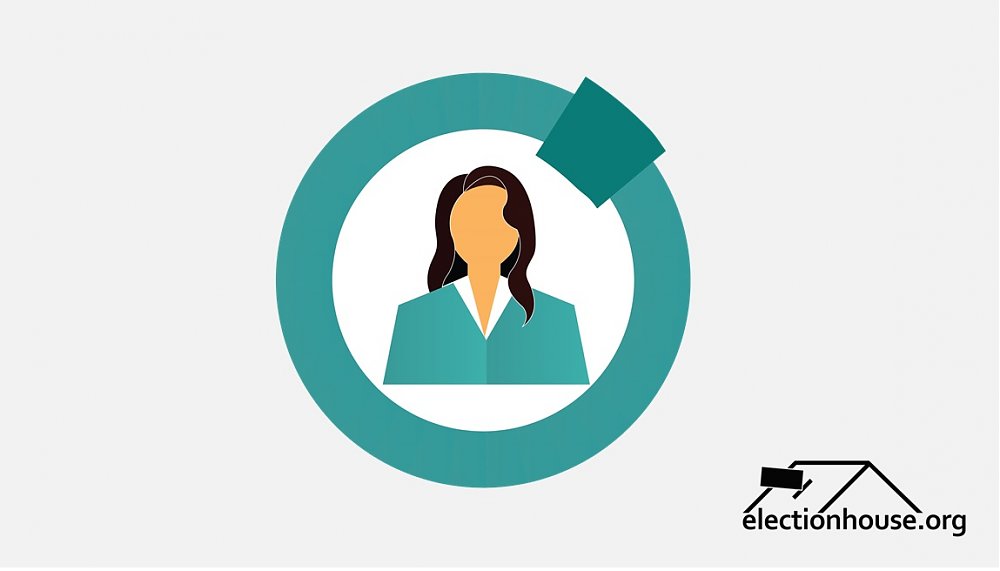The Coalition to Guard Women's Representation urges the General Elections Commission (KPU) to revise KPU Regulation 10/2023. This provision regarding rounding down the candidacy of women for the DPR and DPRD for the 2024 elections is contrary to Law 7/2017 and is inconsistent with the spirit of affirmation in the constitution. PKPU revisions are very likely considering the new DPR/DPRD nominations will be set for November 2023 as well as PKPU's public test procedure which is not participatory.
"Law Number 7 of 2017 concerning Elections has regulated the matter of at least 30 percent of women's candidacy," said Executive Director of the Center for Political Science Studies at the University of Indonesia (Puskapol UI), Huriyah at an online press conference (7/5).
Huriyah explained that PKPU 10/2023 was a setback in meeting women's representation of at least 30 percent. Article 8 paragraph (2) contains a new clause which states that the determination of women's representation in the nomination is based on rounding down the numbers. If this clause is implemented, from several simulations, the number of women who will be in the nomination will not reach 30 percent
Executive Director of the Association for Elections and Democracy (Perludem), Khoirunnisa Nur Agustyati added, the nomination of women in the list of candidates and electoral districts for the DPR/DPRD means violating Law 7/2017, so the KPU must revise this PKPU. The phrase “at least 30 percent” of women's candidacy is not fulfilled. Revising PKPU 10/2023 so that it complies with the law, it is still possible. The KPU cannot only emphasize the stages of nominating members of the DPR/DPRD for the 2024 Election which are already underway but must also see the end of the nomination stages.
“The candidacy stage has already begun. This PKPU also applies to candidacy. But the 2024 election nomination stage is still long. It will only end in November 2023," Khoirunnisa explained.
Based on the simulation, Khoirunnisa described the electoral districts with 4, 7, 8 and 11 seats as the electoral districts most affected by PKPU 10/2023. This means that the percentage of women in this electoral area is very likely to be less than 30 percent. According to him, there will be 38 electoral districts affected or 45 percent of the 84 electoral districts of the DPR with a total of 580 seats.
Secretary General (Sekjen) of the Indonesian Women's Coalition (KPI), Mike Verawati said, PKPU 10/2023 ignores the existing legal guarantees of women's representation. What Mike meant was not only Law 7/2017 but also the basic law that guarantees special treatment for women.
Article 28H Paragraph (2) of the 1945 Constitution of the Republic of Indonesia reads, Everyone has the right to receive special facilities and treatment to obtain equal opportunities and benefits in order to achieve equality and justice.
Political female activist, Wahidah Suaib, confirmed that PKPU 10/2023 ignores the long struggle of women's groups. This Bawaslu member for the 2009 election reminded that the affirmative provisions for women that are now contained in laws and regulations are not a gift from the DPR and political parties.
"It would be a shame if the KPU maintained this PKPU. Even though the KPU members are now leaders in previous institutions who understand the issue of women's representation," said Wahidah.
Various Parties Must Be Involved
This coalition also involves the widest possible parties. Among them are male academics across issues as alliances and also representatives of the Ministry of Women and Child Protection (KPPA).
"Currently we are not debating the representation of women. We have considered this complete. What exists at this time is that PKPU 10/2023 will hinder the achievement of representation as what we consider complete," said political science academic at Samratulangi University, Ferry Daud Liando.
Executive Director of the Center for Law and Constitutional Studies (Pusako) Faculty of Law, Andalas University, Charles Simabura explained, there were at least two legal positions from PKPU 10/2023. First, questioning and debating this regulation with the maker, namely the KPU. Second, judicial review to the Supreme Court (MA).
Representatives from KPPA linked the PKPU 10/2023 issue with gender-equitable policies in other fields. According to him, even though this legal problem exists in the field of elections, it will have a negative impact on the quality and achievement of gender-fair policies in other fields. KPPA asked for things that KPPA could support and connect with.
Charles is of the opinion that, even though the judicial review to the Supreme Court is not a priority step, KPPA can become a party involved in this legal effort. The rest, according to Charles, KPPA or any institution with all its partners and civil society networks in general must debate the KPU and then hope that PKPU 10/2023 can be revised.
In addition, the Election Supervisory Body (Bawaslu) is also part of the election organizers and must be the party pressing the KPU. As an institution that is obliged to implement laws in supervising the 2024 Election, Bawaslu must also be of the same conclusion that PKPU 10/2023 is contrary to a higher law in the hierarchy of statutory regulations.
Previously, in another report, KPU member Idham Holik explained two things (3/5). First, Article 8 paragraph (2) PKPU 10/2023 regarding rounding down for commas below 0.5, is in accordance with international standards of mathematics. Second, this PKPU has gone through a public test process.
Mike clarified that the international standard of mathematics was irrelevant in this discussion because it came out of the PKPU situation which violated the law. Wahidah also clarified that the PKPU 10/2023 public test process was carried out in a non-participatory process. Even though the public test is a forum that must provide enough time for various parties to study the design.
“What often happens, invitations are sent almost at midnight D-1 for tomorrow. Even though PKPU has many articles that must be studied before it is determined as a legal PKPU," said Wahidah.
The Coalition for Guarding Women's Representation consists of various institutions. Among them: Puskapol UI, Pusako FH Unand, Gajah Mada University Election Corner (UGM), Unsrat Election Center, Voter Education Network for the People (JPPR), Independent Election Monitoring Committee (KIPP), KPI, Advanced Indonesian Women, Perludem, Netgrit and the Center for Law and Policy Studies. []
USEP HASAN SADIKIN











